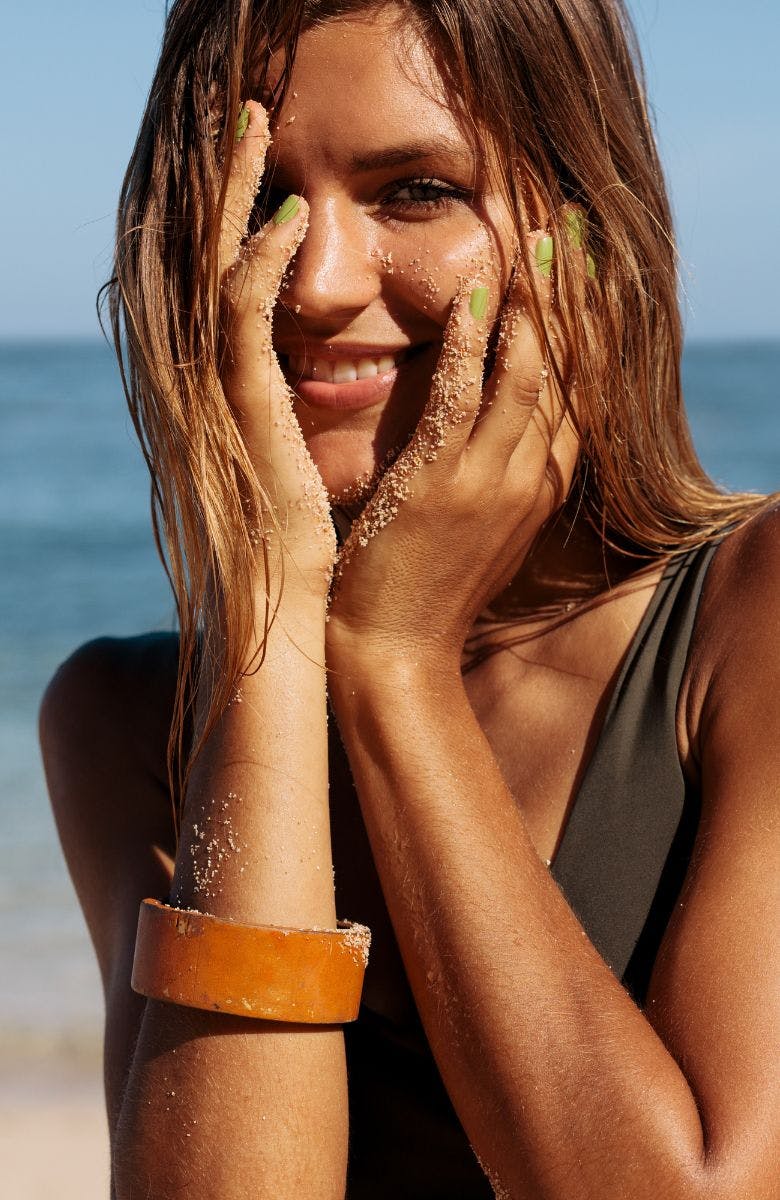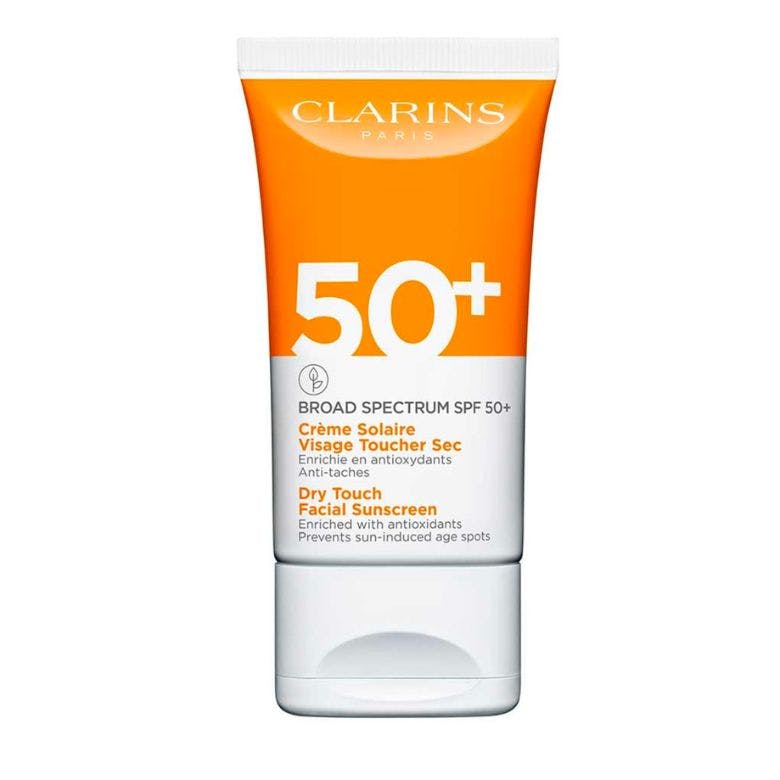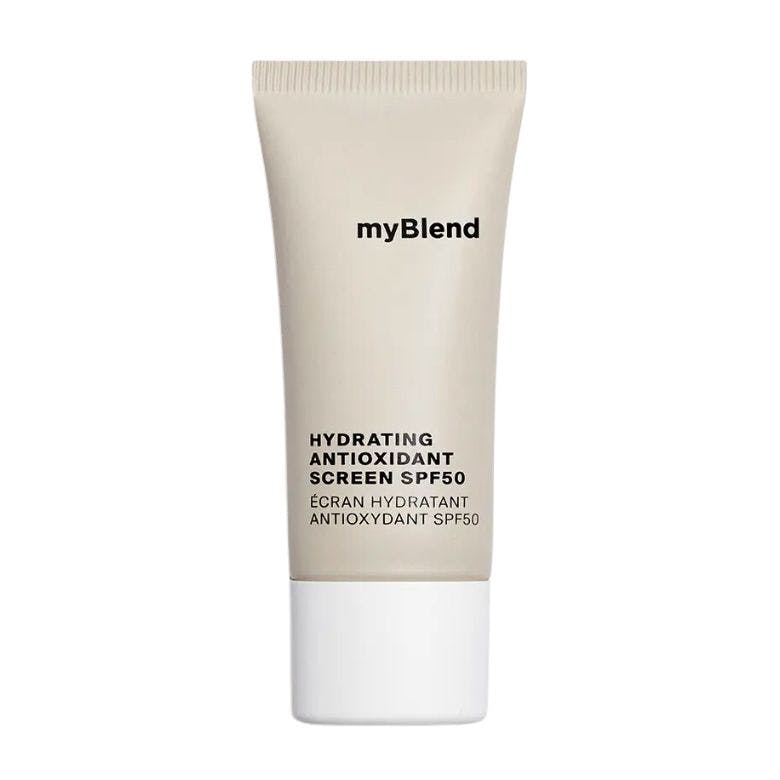Mattifying Sunscreen: Keep Shine & Sun Damage At Bay
5 minutes read
Summer has finally come knocking, and it’s almost time to soak up the sun. But before you head out, it’s important to make sure your skin is protected from harmful UV rays with the help of a mattifying sunscreen. If you’ve got oily skin, you’ll know just how hard it is to find face products that leave you shine-free – but a mattifying sunscreen could be your new best friend when it comes to banishing shine and keeping sun damage at bay. Beauty Daily spoke to Ridah Syed, Senior Medical Aesthetician at Skinfluencer London to find out what makes a mattifying sunscreen a must-have product in your summer skincare regime.

What is a mattifying sunscreen?
Mattifying sunscreen is a type of sunscreen that is designed to keep your skin looking matte and shine-free. It contains ingredients that help to absorb excess oil and prevent your skin from looking greasy, so is perfect for those with oily skin who want to keep their complexion looking fresh and shine-free.
Why use a mattifying sunscreen?
There are several benefits to using a mattifying sunscreen. First and foremost, it helps to protect your skin from harmful UV rays, which can cause sunburn, premature aging, and even skin cancer. However, Syed claims that there are some other factors to consider when choosing the best mattifying sunscreen for you.
“If you simply prefer a non-shiny finish to your skin, then a mattifying sunscreen is a good choice,” she says. “But if you want to keep oily skin under control or to prevent breakouts, you’ll need to be more particular with your SPF choice. Opt for a non-comedogenic formula, which won’t clog your pores — and choose a formulation that’s oil-free and oxybenzone-free.”
Read next: Eye cream with SPF: Stop missing your eye area!
How to use a mattifying sunscreen
When it comes to SPF application, Syed says that there are a few golden rules to follow. “It actually depends on the type of sunscreen you’re using, and whether it’s chemical or physical (mineral),” she says. “If you use chemical sunscreen, you should apply it before moisturiser so your skin has time to absorb the ingredients that are charged with protecting your skin.
“If the moisturiser is applied before the chemical sunscreen, it could actually change the properties of your sunscreen and create a barrier between your skin and the SPF meant to protect it.
“Physical (mineral) sunscreen should go on after moisturiser, as it needs to sit on top of your skin so the actives will act like a shield against the UV rays.”
Read next: The men’s guide to wearing SPF
Can I skip moisturiser and use sunscreen for oily skin?
According to most skincare professionals, replacing your moisturiser with a sunscreen (and vice versa) is a total no-go. “I would never recommend doing this, as the functions of the two products are very different,” Syed explains. “A moisturiser helps to keep your skin hydrated, while nourishing the skin to help keep your skin healthy. A sunscreen’s primary function is to protect against harmful UV rays.”
Put simply? You can’t skimp on either of these important steps in your routine.
Why does my sunscreen make my face so oily?
Some sunscreens can make your face feel oily after you put them on, and this is usually because they contain oil to help protect your skin from the sun. If your sunscreen makes your face feel oily, try using a sunscreen that is labelled ‘non-comedogenic’, which means that it is less likely to cause blackheads or other acne.
“Oily skin is due to the sebaceous glands in the skin producing more sebum than usual,” Syed adds. “While every skin type needs sunscreen, it is important to ensure that you choose a sunscreen product that won’t add more oil to your skin, leading to breakouts.
“There are two reasons why sunscreen can make your face oily. First, any type of sunscreen that has a heavy formulation can block the pores and cause breakouts. Second, chemical sunscreens can worsen breakouts by inflaming the skin further. This is because the active ingredients are built to react with UV rays and turn into infrared radiation, which then try to disperse as heat.”
Can sunscreen cause acne breakouts?
“If you have oily skin and want to avoid breakouts occurring, it’s best to use an oil-free sunscreen that won’t clog your pores,” Syed recommends. “Choose lightweight formulas specifically made for oily and acne-prone skin. Opt for a non-comedogenic formula as it won’t clog your pores — and remember to choose a formulation that’s oil-free and oxybenzone-free.”
The best mattifying sunscreens
Clarins Dry Touch Facial Sun Care UVA/UVB SPF50+, £24

A multi-protection sunscreen that not only protects the skin from the sun but also locks out pollution and free radicals, forming an invisible shield on the skin’s surface. It has a smooth melting texture and a dry to the touch and matte finish, making it perfect for oily skin.
Clarins UV PLUS [5P] Anti-Pollution Translucent, £34
![UV PLUS [5P] Anti-Pollution Translucent](/_next/image?url=https%3A%2F%2Fbeautydaily.b-cdn.net%2Fwp-content%2Fuploads%2F2022%2F08%2FUV-PLUS-5P-Anti-Pollution-Translucent.jpg&w=828&q=75)
A high-tech, high-performance facial sunscreen that protects the skin from UVA and UVB radiation, environmental aggressors and blue light. It also has a lightweight, creamy texture that dissolves instantly into the skin.
MyBlend Hydrating Antioxidant Screen SPF50, £40

Providing the highest level of UVA/UVB protection, this moisturising and fast-absorbing SPF is infused with zinc oxide and powerful antioxidants which all work together to shield the skin from a multitude of aggressors.
Beauty Pie Super Healthy Skin Featherlight UVA/UVB SPF 50 Sunscreen with Primer, £50
An SPF and primer hybrid. This colourless, lightweight, and easily absorbed sunscreen provides UVA and UVB protection, and is infused with Vitamin E, green tea and anti-wrinkle peptides. It’s also hypoallergenic, water-resistant, and leaves no greasy residue on the surface of the skin.
Supergoop! Mineral Mattescreen 100% Mineral Sunscreen, £34
Boasting a mineral-based formula that effectively shields the skin from harmful UV rays, this SPF leaves a matte finish thanks to its totally grease-free and lightweight texture.
Murad Oil and Pore Control Mattifier Broad Spectrum SPF45, £44
A total game-changer in the world of SPF, this product effectively tackles oiliness and minimises pores while offering strong broad-spectrum protection.
Ultra Violette Lean Screen Mineral Mattifying Fragrance Free Skinscreen SPF 50+
A fragrance-free, mineral-based formula that blocks harmful UV rays while providing a matte finish at the same time.
Next read: This is why a mineral sunscreen should be in your basket
Sign up for our newsletter
We will keep you in the loop for special offers, exclusive gifts and product news.

